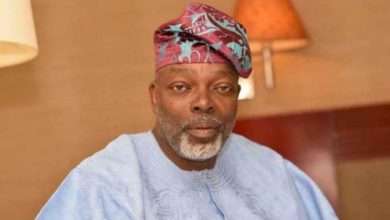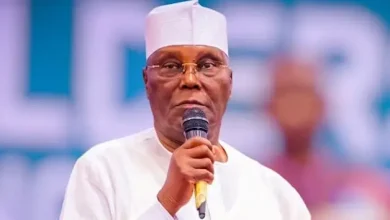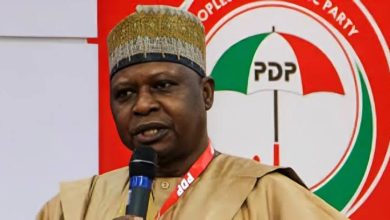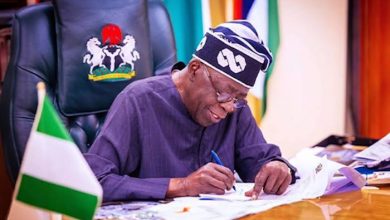Fubara Accused of Attempting to Bribe Constituents to Force Lawmakers Recall
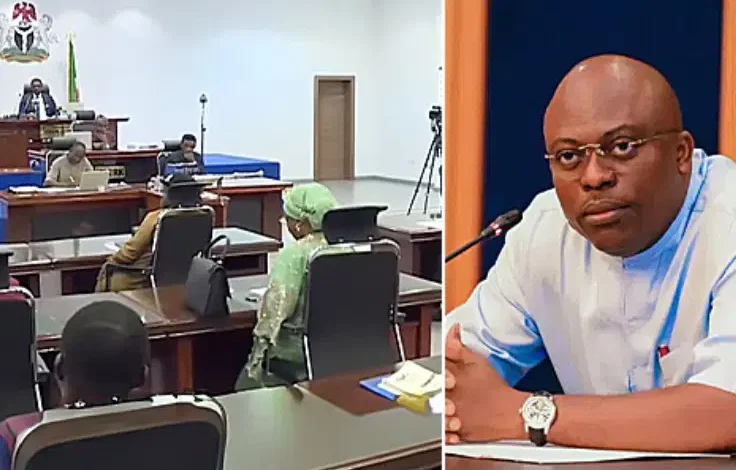
Members of the Rivers State House of Assembly have leveled serious allegations against Governor Siminalayi Fubara, claiming he is secretly funding a plot to have them recalled by their constituents.
This development comes as the lawmakers doubled down on their resolve to proceed with impeachment proceedings against the Governor and his deputy, Professor Ngozi Odu.
Speaking at a press conference on Friday at the Assembly’s temporary complex in Port Harcourt, Hon. Looloo Opuende, representing Akuku Toru Constituency II, accused the Governor of sabotaging peace efforts.
He claimed that while the House was open to a political resolution, the executive was busy attempting to uproot them from office through financial inducements to voters.
“While the impeachment process was going on, the governor was busy paying our constituents to withdraw us from the Assembly. Is that the right thing to do? If you wanted peace, you should have called the leadership of the Assembly and discuss with them on the right way to go. Impeachment is a constitutional matter. I support and urge the speaker to reconstitute the House for the process to continue,” Opuende stated.
However, the political atmosphere in the state tightened as four lawmakers, who had previously advocated for a truce, officially withdrew their support for a political settlement.
Hon. Emilia Lucky Amadi of Obio/Akpor Constituency II expressed frustration over what she described as the Governor’s “adamant” refusal to follow constitutional paths.
She remarked: “We had earlier opted for a political solution to the problem but the governor and the deputy governor are adamant. There are strong indications that they still want to continue with illegal actions in the state. We consider this a slap to the Supreme Court and we must defend the institution of the legislature.”
Sharing a similar sentiment, Hon. Barile Nwakoh of Khana Constituency I alleged that the executive’s strategy was “to continue to intimidate us into withdrawing the process while they continue with the infractions on the constitution and the law. This is very bad to our democracy. On this note, we must proceed with the process.”
In a swift reaction, the Senior Special Assistant to the Governor on Political Matters, Dr. Darlington Orji, dismissed the recall allegations, stating, “I am not aware.”
However, Orji launched a counter-offensive, questioning the integrity of the lawmakers regarding financial appropriations. He alleged that each member of the Assembly had received N350 million for constituency projects and questioned why they accepted those funds if they were so concerned about “unappropriated” spending.
He also referenced a N100,000 Christmas welfare package offered to the lawmakers last December.
While some rejected it on the grounds of non-appropriation, Orji noted, ”They rejected it that it was not appropriated. You cannot build something on nothing. Now, you rejected it because N100,000 was not appropriated. Can you ask them, the N350m naira that was given to each of them for their constituency project, where did it come from? Why did they not reject it since it was not appropriated?”
Meanwhile, the Assembly has now moved to the next stage of the impeachment process. During Friday’s plenary, Speaker Martins Amaewhule oversaw a vote to investigate the Governor and Deputy Governor. The motion passed overwhelmingly with 25 votes in favor.

